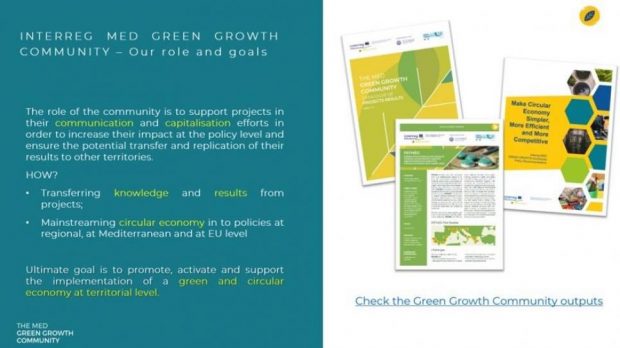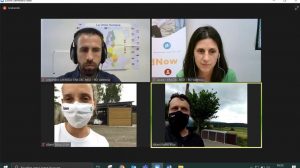BETA TC participates in the EU Green Week 2021 through Green Growth and DECOST projects
Both projects have been protagonists in two sessions of the event

The BETA Technological Center has participated in the 2021 edition of EU Green Week, the largest annual environmental policy event in Europe, which has been held virtually this week. For years, this event has established itself as the main opportunity to create multisectoral debate and dialogue between stakeholders, both at European and national and local level. In 2021, the whole event revolved around Zero Pollution strategies.
The Interreg MED Green Growth community: Towards zero pollution in the agri-food sector
The agri-food sector in Europe contributes greatly to air, soil and water pollution and to greenhouse gas emissions across the continent. The EU’s transition to sustainable food systems has begun in many areas, but much remains to be done along the value chain; from food production, packaging and transportation to consumption patterns. Thanks to the new Green Deal and its “zero pollution” action plan and the “farm to table” strategy, European food systems will be able to become more sustainable and environmentally friendly. However, solutions to achieve zero pollution in the agri-food sector have yet to be developed and implemented at the local level.
This issue is the focus of the seminar organized by the Comunitat Interreg MED Green Growth, led by CT BETA. Víctor Carbajal Perelló, project manager of the community, explained, as an introduction, how to move towards zero pollution in the different stages of the agri-food value chain with an approach based on the circular economy. Three community projects (REINWASTE, PEFMED and RE-LIVEWASTE) have presented innovative good practices to reduce pollution and environmental footprint along the agri-food value chain, from production to consumption. To end the session, an interactive exercise was conducted where the audience was able to apply the information received during the presentations to a case study where possible solutions were identified to make the food value chain more sustainable.
Youth and zero pollution in the Mediterranean: the DECOST project as an example of a success story
For its part, the ENI CBC MED cooperation project funding program organized a specific session to highlight the role of the new generations in solving the environmental problems of the Mediterranean region. This session served, in two ways, to give a voice to young people who are already leading successful initiatives, and to demand cooperation between the northern and southern shores of the Mediterranean Sea to meet common challenges.
One of the successful projects that presented its results is DECOST, a project led by CT BETA with funding from the ENI CBC MED program itself to promote new urban organic waste management systems. On behalf of CT BETA, Joan Colón, Mabel Mora and Albert Palou made a live connection from three points in Les Masies de Roda, from where they showed all the elements of the pilot community composting system that exists. installed.

